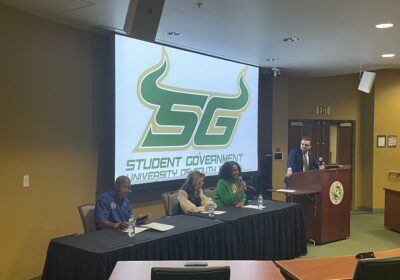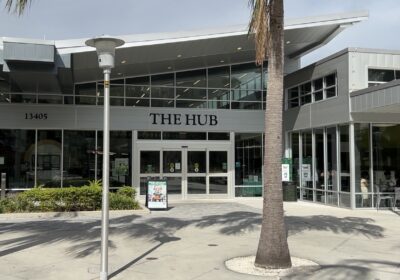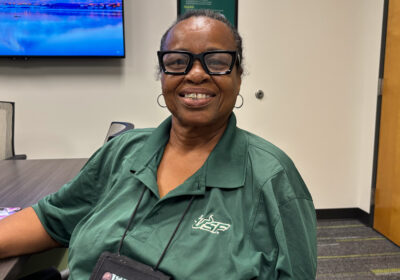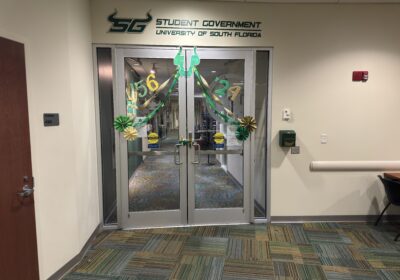Public health professors advise caution to USF students traveling over break
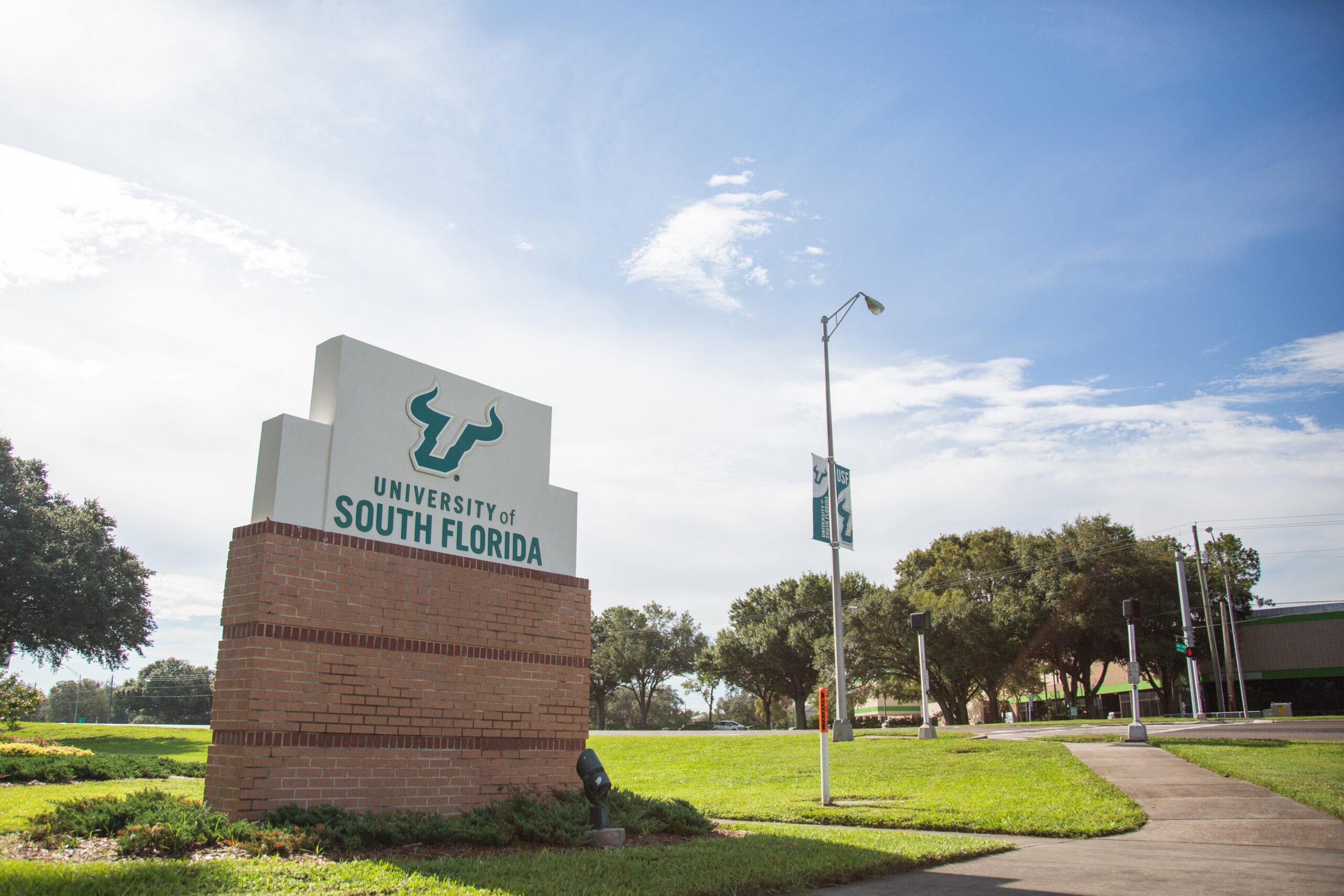
Returning home or taking a vacation this winter break may seem like an ideal relief to the stresses that the pandemic has posed throughout the semester, but increasing COVID-19 numbers will throw a wrench in the works.
The winter is expected to bring a whole new set of concerns into an already erratic time of public health concerns as the flu and holiday season approach. Marissa Levine, a professor at the College of Public Health, said this is just the beginning; COVID-19 cases have already spiked and the holiday season just started.
“Now we’re in a pretty difficult place because the transmission rates are going up significantly right before the holidays and people are just starting to travel now,” Levine said. “And that only means there’s a potential for it to get much worse.”
Hillsborough County has reported 58,293 total positive COVID-19 cases since March 2 and an estimated 937 fatalities as of Dec. 1, according to Hillsborough County’s COVID-19 Data Dashboard.
The dashboard also shows cases in the county steadily increasing since the beginning of October. The rolling average of new cases per day every two weeks was 163 as of Oct. 1. Two months later, it’s reached 370.
In Florida as a whole, there’s been a 134% increase in cases within the last month and an 82% increase in COVID-19 hospitalizations, according to associate professor at the College of Public Health Jason Salemi. Florida is also almost at its 1 million mark in COVID-19 cases.
As for USF, the university has reported 726 cases since Aug. 24. Among the total cases, 645 are students and 81 are faculty and staff.
The number, however, is expected to increase as the holiday season approaches, according to Levine.
“December has more holidays. That means more gatherings and … more of a concern for people who are at high risk of complication and death,” Levine said. “So even though in all likelihood more young people will probably pick up COVID, it’s not going to stay with them.
“They’re going to transmit it to older folks and people who are at risk. That’s the big concern.”
For the final two weeks of the semester following Thanksgiving break, the university transitioned all on-campus classes to fully online instruction to mitigate the risks of spreading COVID-19 at USF after students have traveled.
The measure, however, won’t be extended into the spring semester, when thousands of students will return to campus for the first day of classes Jan. 11 after traveling during winter break.
While traveling might be tough to control, there are ways to mitigate the risks of contracting or spreading COVID-19 during the holiday season, according to College of Public Health professor Jill Roberts.
For Roberts, ground travel will be much safer than traveling by air due to the possibility of coming into contact with an overwhelming number of people in airports.
“If you’re planning on coming back for live classes, we definitely don’t want you to bring coronavirus back with you,” Roberts said. “If you’re going to a place where it’s reasonably obvious that you could get there by driving, it’s actually a safer option in terms of … coronavirus. If you do have to fly, follow all the procedures that the airline is giving you.”
The risks don’t only lie with those traveling, but also those they come home to and interact with. Vulnerable populations, including the elderly and immunocompromised, are at the highest risk of being affected from people traveling for the holidays, according to Salemi.
To mitigate the spread, Salemi said the solution comes down to individual responsibility until the virus is under control.
“Everything is situationally dependent on where you live, the actions of you and your family members, how big your bubbles of interaction are as to what your ultimate risk is, but again, you layer these kind of actions on top of one another, and it just reduces the likelihood that somebody who could have some adverse consequences from this virus gets it,” he said.
“It’s not about everybody doing everything perfectly. It’s about enough people doing enough things correctly.”
If planning to return to campus after winter break, assistant professor of epidemiology Chighaf Bakour recommends that students should voluntarily quarantine and get tested to make sure they don’t carry the virus into the classroom.
“Once you arrive, try to come early, don’t arrive the day before classes start,” Bakour said. “Come a week or so early, and quarantine yourself.”
Testing will also play a key role during the spring semester as the university welcomes thousands of students, faculty and staff back to its campuses.
All students living in residence halls will be tested prior to moving in. Random testing will continue throughout the spring semester, but not all students will be required to get tested before stepping foot on campus.
Levine said more tests should be available for students planning to take in-person classes or visit campus on a regular basis.
Despite the measurements in place to contain the virus, Levine said the current rise in the number of COVID-19 cases could determine whether the university will continue to offer online and in-person courses or be forced to transition all classes to remote instruction.
“If it’s really bad, there may not be a ‘coming back,’ physically,” Levine said. “It may be all virtually so a lot will be determined by what happens over the next four weeks. And there’s really no place in the United States where this isn’t an issue right now, which makes it even harder.
“What it calls for is all of us doing our part and working together, because we can’t manage a pandemic by just piecemeal scattered efforts to control it. It really has to be uniform. And right now it’s going to have to be the whole country.”
Planning should be a priority this holiday season, especially if students consider visiting family members who might be more vulnerable to contracting the virus, according to Levine.
“I would think through the whole sequence of events of your trip and identify those places along the way where you’re potentially at high risk and do everything in your power to control that risk,” she said.
“I’ve said all along good planning, good understanding of the disease and how it’s transmitted and how we prevent it means that we could figure out how to do this, but you can’t just deny the situation, you really have to address the situation and be prepared.”
Additional reporting by Leda Alvim and Jorgelina Manna-Rea.

